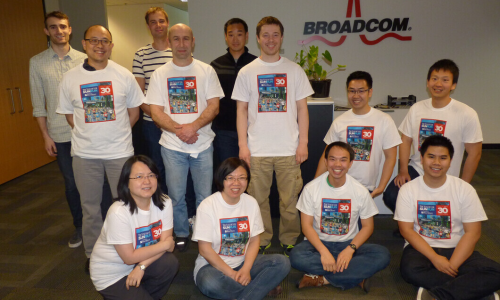
A college education is known for being expensive. Those jokes about crippling student debts are as real as the orange-ness of a certain Cheeto-coloured President’s skin. In fact, recently I heard one of my friends owed $40,000 in student loans. Needless to say, I hyperventilated on her behalf. However, it does not always have to be as alarming, especially when talking about a grad school education. Based on my own experience and those of my peers I bring to you a list of options that you can tap into if you want to pursue a grad program, bother here and abroad. Note that in this article I will NOT talk about different kind of student loans from banks, as I want to help you consider options which will keep you debt-free.
1. Scholarships (Departmental, External, and Governmental)
This is a no-brainer option, and often incoming students are offered such funds directly by their universities, without the students applying for them directly. However, the catch is in remembering that there is not just one kind or source of scholarship.
Departmental and External: Let me break this down for you by using SFU’s grad awards as an example. Every month graduate students at SFU receive a grad newsletter informing them of all news and announcements pertinent to them. These also include announcements of job offerings and scholarships. This newsletter announces the opening of a list of department-specific and university-wide scholarships to students, every summer. These scholarships can range from a few hundred to several thousands of dollars. All application requirements are easily available online and the application period runs for at least a month if not more. However, these are mostly private awards that are announced by the university. There are also funds announced by independent organizations and governmental awards e.g. Fulbright Scholarship, SSHRC awards. You can begin your search by looking into the Department of Education of your home country, as well as the host country, if you are travelling for your degree.
2. Trusts, Charities, Educational Societies and Interest Groups
A sub-category of the external funds are grants from charities and trusts who often reserve funding for target demographics. For instance, the Aga Khan Foundation’s fund has the following target population
“The Foundation accepts applications from nationals of the following countries: Bangladesh, India, Pakistan, Afghanistan, Tajikistan, Kyrgyzstan, Syria, Egypt, Kenya, Tanzania, Uganda, Madagascar and Mozambique. In France, Portugal, UK, USA and Canada, applications are accepted from those who are originally from one of the above developing countries, are interested in development-related studies and who have no other means of financing their education.”
Organizations or foundations of this kind look for candidates with excellent academic records and unique research areas. When and if applying for such funds be sure to highlight the significance of your work and skills.
3. Apply Widely and Negotiate
There are two benefits of applying widely: a) there’s a higher chance of getting accepted by at least one institution, b) if you have a strong student profile, you can use the offers against each other to negotiate better funding. This process is very much like negotiating a job salary, and I should add here that it works best for PhD programs. However, there are cases where students in different Master’s Degrees have been offered more funding by competing universities, to attract them. Additionally, this summer when a friend of mine accepted her PhD offer without any negotiation, one of the senior professors of SFU Social Sciences personally contacted her to remind her to always negotiate a higher stipend. So, do not feel shy or hold back once you get accepted by post-secondary institutions. Believe in the worth of your contribution and negotiate for what you think you deserve.
4. TA and RA Positions
TA or Teaching Assistantships are common ways of funding graduate students. These are especially popular in social sciences and STEM subjects. For example, when I had applied to SFU as a grad student, a portion of my funding was provided through guaranteed TA positions. Based on your degree and type of program, you can be guaranteed a varied number of Teaching Assistantships. And once you have run out of the guaranteed spots, you can always apply on your own to as many departments as you like. If you have the relevant background in a subject, you can apply for a TA position in it. For instance, if you are a graduate student in the English department but have a background in Mathematics and Computer Science, you can easily apply to TA in the STEM subjects. RA positions or Research Assistantships are usually tied to research projects under particular professors, including your own supervisor. If you are not offered an RA position during admission, you can always apply for one or more after you begin your program. Graduate departments circulate RA postings not only from several programs but also from other universities. Working as an RA not only helps you fund your graduate degree, it also helps you gain valuable work experience, and broadens the scope of your learning, as you participate hands-on in specialized research work.
5. National Research Councils
These are public sector distributors of investment in research projects and can be found in multiple countries, including Canada. Sometimes the investment might be program or discipline-specific, for example, NRC in Canada invests in researches on science and technology. The funding competition is quite competitive, and candidates need strong academic and professional backgrounds. The amount awarded can often cover tuition and expenses. Be sure to check the requirements of the institutes in your host country.
These are some of the few common sources and techniques of funding your graduate program academically and right from the beginning of your program. Keep an eye out for the next guide on how to fund your grad degrees on your own or outside your program.
Beyond the Blog
-
Stay informed about the Canadian scholarships out there!














